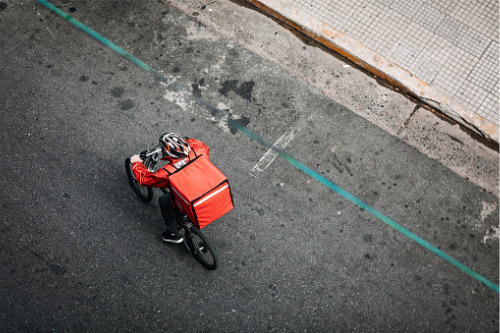

The Transport Workers' Union (TWU) is calling for better workers' compensation in Australia's gig economy following the deaths of five online food delivery riders since September.
Dede Fredy, a 36-year-old Uber Eats rider from Indonesia, died on September 27 after being hit by a car in Sydney while delivering food. As a result, lawyers acting for the TWU have filed a workers' compensation claim with icare for a work-related death on behalf of Fredy's widow.
However, current Australian labour laws consider food delivery riders as “independent contractors”. Therefore, the company is not obligated to pay workers' compensation in the event of injury or death, leaving the families without any income.
In New South Wales (NSW), some companies cover contractors with a private insurance policy. However, TWU said the payout is significantly less than that provided by the government scheme.
The NSW government insurer, icare, said it “proactively lodged claims for four food delivery riders killed in NSW and is investigating the eligibility for workers’ compensation benefits.”
TWU argues that the current labour laws allow companies in the gig economy to divest themselves of responsibility to their riders.
Read more: Why a workplace injury claim can be denied
“[Riders are] dying without these companies blinking. For them, it's just a blip on the bottom line,” said TWU national secretary Michael Kaine, as reported by ABC.
Kaine said the TWU is planning to use the tragic cases of Fredy and another Uber Eats rider who died on the job, 27-year-old Bijoy Paul from Bangladesh, as part of a test case to force companies to give employees and their families equal access to compensation under the government scheme.
“Riders are out on our streets day and night slogging for these multibillion-dollar companies … The Australian community expects far better treatment for workers than this,” Kaine previously told The Guardian.
